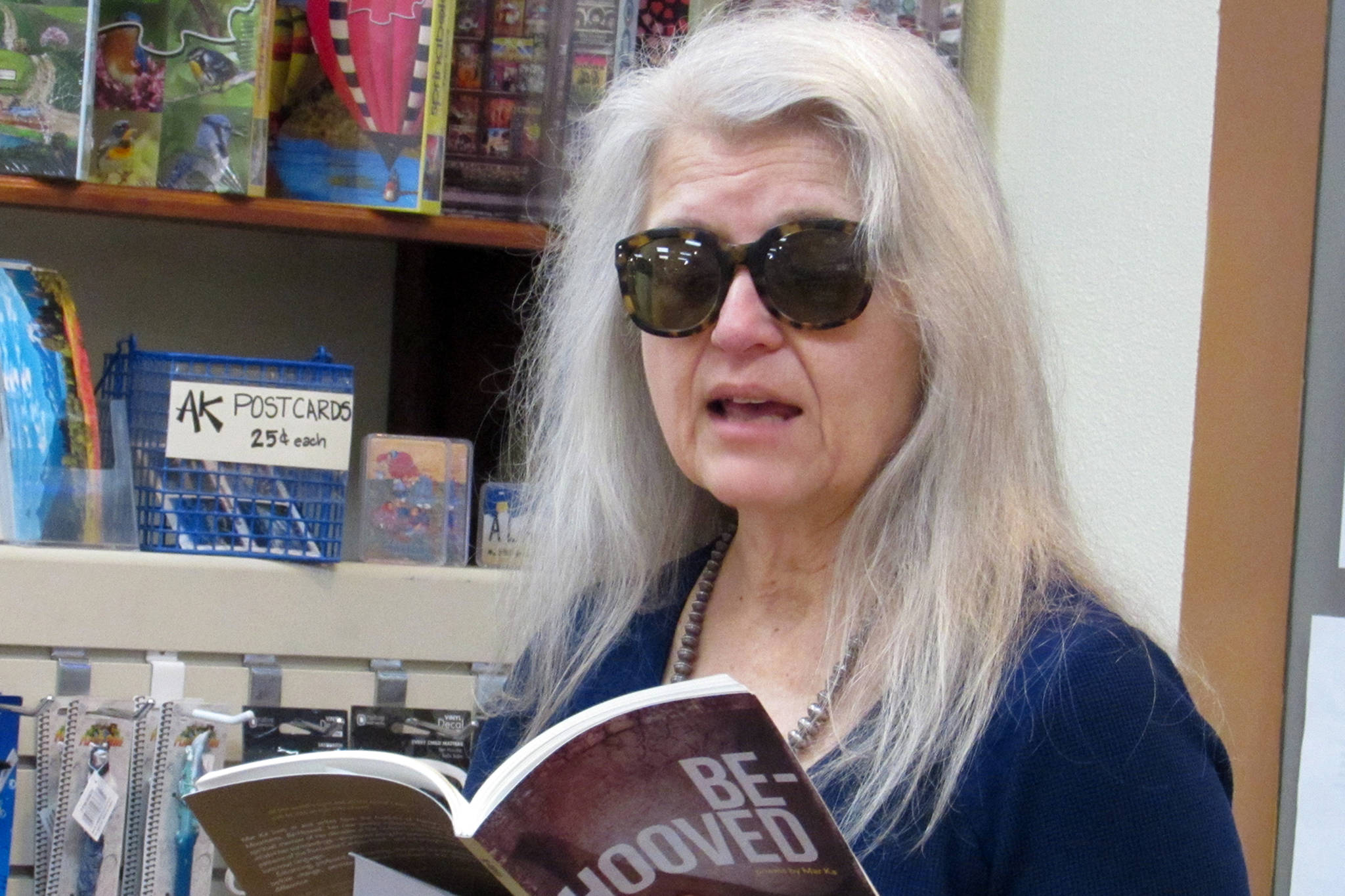Lately there’s been a sense of urgency to Mar Ka’s ecologically minded poetry.
Ka, who traveled to more than 90 Alaska Native villages as an indigenous rights attorney and now writes poetry, said after a poetry reading at Hearthside Books in Juneau that bleak news about climate change definitely colors her work.
“I keep thinking about it,” she said while taking audience questions after her reading. “It’s not original, but I keep thinking about the saying, science changes minds, but art changes hearts, and we all need to do our part that way.”
Ka, who lives in the Eagle River area, was in town Thursday to read from her new poetry collection “Be-Hooved.” She was introduced by Juneau poet and University of Alaska Southeast professor Emily Wall, who also gave a short reading.
“Be-Hooved” was published by the University of Alaska press, and Wall said she read the work as a manuscript since Wall is on the press’ advisory board.
[Contest-winner gets another shot at state]
Wall read a trio of short poems from the perspective of the Virgin Mary, which are part of a recent push by Wall to write more persona poems. Persona poems are written in an voice assumed from another person’s perspective.
“It allows me to say or do something I wouldn’t normally do,” Wall said.
The poems imagined Mary cooking and where she lives now.
Ka’s poems were from a more personal perspective but with a few additional filters.
“I think of these poems as a non-traditional memoir,” Ka said during her reading. “They’re not organized chronologically. They’re organized seasonally, and I think you’ll all understand that the winter section is by far the longest.”
River Stone
The stone I hold
fills my hand
I want to tell it,
compel it,
to tell me
how to be
still within.
I feel cool rays spill
into my palm:
Not will, but
willing.
-Mar Ka
Many of the poems are related to caribou migration, too, which partly explains the collection’s hyphenated title, which is partly a call for inter-species empathy and for readers and listeners to imagine the perspective of hoof-having animals.
During Ka’s reading, she referenced studies that determined caribou that live with 24-hour darkness experience color change in their retinas as well as studies that affirm the Native practice of allowing the caribou leading a herd to pass without being harvested.
Only a few lead caribou actually follow directional signals to navigate during migration, while the rest of the caribou follow social cues.
Ka said it’s not particularly difficult to stay informed of scientific findings that inform some of her writing.
“I think Alaska has more scientists than other places.” Ka said in an interview after her reading. “I think Alaska has more scientists than other places.”
Ka, who grew up in Chicago, said Alaska has informed her poetry profoundly.
She was a young professional with a law degree from University of Chicago and was discouraged by life at law firms. It was not the future she envisioned for herself, she said.
[Book Review: “Roughly For The North]
She came to The Last Frontier for a writers conference in Fairbanks. After that, Ka never left, and Alaska’s ecology worked its way into her writing.
“Alaska taught me that,” Ka said. “Growing up in Chicago, being the kind of reader that skips the nature descriptions in books because didn’t mean anything.”
• Contact arts and culture reporter Ben Hohenstatt at (907)523-2243 or bhohenstatt@juneauempire.com. Follow him on Twitter at @BenHohenstatt.

